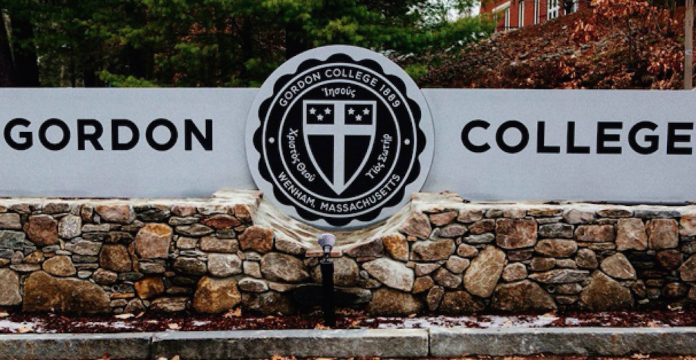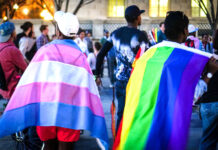Massachusetts Superior Court Judge Jeffrey Karp ruled in favor of former longtime Gordon College Professor Margie DeWeese-Boyd, who claimed the school denied her promotion because of her “outspoken support for LGBTQ students at an institution that forbids ‘homosexual practice,'” according to a WBUR report.
The ruling finds that “religious schools’ First Amendment protections do not allow them blanket exemptions from laws regarding workplace discrimination,” states the report, which goes on to explain that:
Faced with a former professor’s allegation of an unfairly denied promotion, Gordon College — the evangelical Christian institution in Wenham — has argued for years that she and all of its teachers are also ministers, and therefore not subject to ordinary statutes on discrimination. But in a finding issued last week, Judge Jeffrey Karp found in favor of the former professor: Margie DeWeese-Boyd, who taught on Gordon’s faculty of social work for over 20 years.
It’s a procedural victory as DeWeese-Boyd continues to pursue damages in her case. But it also provides a legal bulwark against religious schools getting what Hillary Schwab, DeWeese-Boyd’s attorney, called “carte blanche to violate discrimination laws.”
In the fall of 2017 DeWeese-Boyd alleged that she had been denied a promotion to full professor despite the support of Gordon’s faculty senate, and due in part to her outspoken support for LGBTQ students at an institution that forbids“homosexual practice.”
The college responded by invoking the “ministerial exception” formalized in a 2012 ruling by the U.S. Supreme Court. The court found that under the First Amendment, “the authority to select and control who will minister to the faithful… is [a] church’s alone.”
Judge Karp agreed with the first part of the college’s argument, finding that Gordon — while a liberal-arts school like so many others — is also undoubtedly a religious institution.
Upon their hiring, faculty members at Gordon must agree to a “statement of faith” that declares, among other things, that Christians are obligated to promote “the universal spread of the gospel,” and that “[t]he righteous shall enter into full possession of eternal bliss” after their death. In testimony, D. Michael Lindsay — Gordon’s president since 2011 said he sees joining Gordon’s faculty as akin to “joining a religious order.”
But Karp found that DeWeese-Boyd was not herself a minister in any sense of the word. Though she is herself a practicing Christian, Karp wrote, as a professor of social work she took little part in church activities, “had no religious duties and did not actively promote the tenets of evangelical Christianity,” in his words.
To conclude, Karp borrowed from another ruling: to say that if DeWeese-Boyd were judged a minister, “it is hard to see how any teacher at a religious school would fall outside the exception.”
Not a subscriber? Sign up today for a free subscription to Boston Spirit magazine, New England’s premier LGBT magazine. We will send you a copy of Boston Spirit 6 times per year and we never sell/rent our subscriber information. Click HERE to sign up!









